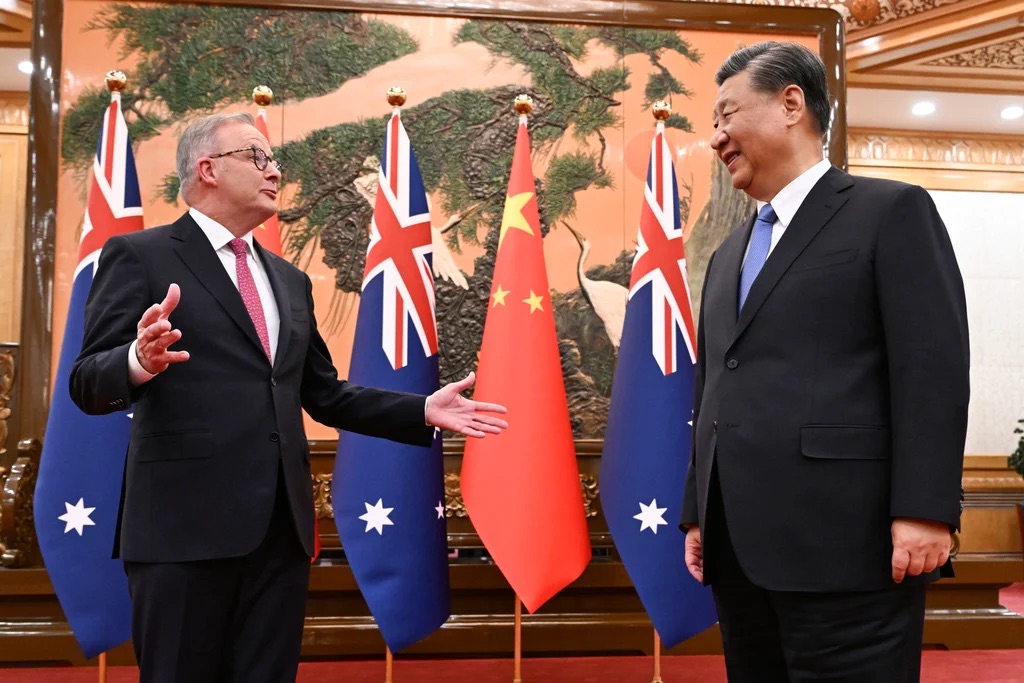
Australia has bravely but decisively shot down China’s offer to collaborate on trade disputes. This decision partially responds to the recent tariffs the USA unleashed. At the same time, tensions in global trade relations are escalating. This latest call comes hot on the heels of former President Donald Trump’s announcement of a 90-day pause on high tariffs that hurt many countries, including Australia.
Australia’s Strategic Focus on National Interests
Trade Minister Don Farrell met recently with his counterparts from Japan, Singapore, South Korea and India. They sought out new export opportunities outside the US. During his visit, Prime Minister Anthony Albanese reaffirmed Australia’s commitment to putting Australia’s national interests first. He continued, “Eighty percent of trade does not include the US. There are opportunities outside the US for Australia and we are going to grab them.”
China’s ambassador to Australia, Xiao Qian, argued that joint resistance against what he termed the “hegemonic and bullying behaviour of the US” is essential. He also called on Australia to work together. Collectively, they would have a much greater ability to combat unfair trade practices.
“Joint resistance is the only way to stop the hegemonic and bullying behaviour of the US.” – Xiao Qian
Despite these appeals, Australian Defence Minister Richard Marles underscored the nation’s stance by declaring that Australia would not be “holding China’s hand.” Continually, he emphasized the need for the government to pursue their own national interests and not just follow what China wants.
China’s Warning About Weak Compromise
In further conversation, Mr. Xiao warned about the longer terms effects of what he called a “weak compromise.” He cautioned that this possibly set up a perverse circumstance for Trump to do the most damage on the international order. This would be to steer the world economy into a swamp and an underwater.
Yet in reaction to these changes, Albanese focused on just how important Australia’s trade relationship with China is. He knew that because of the country’s economic landscape, that was going to be a key component. In doing so, he doubled down on a belief that independent negotiation approaches with the US government should be the priority.
“It’s about pursuing Australia’s national interests, not about making common calls with China.” – Richard Marles
For its part, Australia understands how important its relationship with China is. At the same time, it has made a concerted push to expand its trade routes beyond U.S. markets. The ongoing discussions with other nations indicate a strategic pivot aimed at strengthening Australia’s economic position in an increasingly complex global trade environment.
Author’s Opinion
Australia’s refusal to align with China on resisting Trump’s tariffs shows a strategic focus on national interests rather than geopolitical alliances. While China’s offer may have appeared tempting as a united front against the U.S., Australia’s decision reflects a careful calculation to maintain independence in its foreign trade policy. This move underscores the importance of diversifying trade relationships and asserting sovereignty in a global environment filled with trade tensions. By seeking opportunities beyond U.S. markets and continuing to engage with China, Australia is balancing its global presence and securing its long-term economic stability.
Featured image credit: FMT
Follow us for more breaking news on DMR
